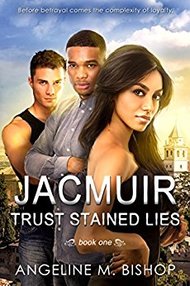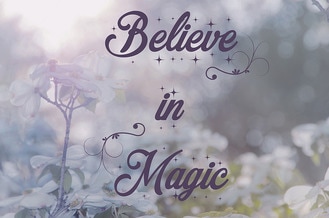 I love working on the Jacmuir Series because I realize now, more than ever, that I adore writing multicultural New Adult bildungsroman fiction. There's something about constructing maturation plots that give me a great sense of satisfaction. I know writers are free to write about whatever topic they want but there is something intricately satisfying about writing novels where a protagonist's inner transformation and the lessons they learn make up the strongest parts of the story. The writing of this series was greatly inspired by Le Morte d'Arthur by Sir Thomas Malory. Malory successfully consolidated many Arthurian legends into one epic volume. The first publication of Le Morte d’Arthur published by William Caxton in 1845 therefore the Caxton version remained the sole textual source for Malory’s work. Scholars have not been able to determine whether King Arthur is based on a historical personage who really existed, although several early histories of Britain mention him. He may have been a Celtic war leader who helped defend Britain against Anglo-Saxon invaders in the A. D. 400s or 500s. Supernatural beings and events take place in the Arthurian legends which goes beyond the normal medieval world. Jacmuir is a fictional country set in contemporary times with a few aspects of magical realism. I’ve incorporated fantastical events and mythology into this book series so the fantasy traits of telekinesis, hyper-speed, and levitation are experienced once a person becomes a Crimson Knight.  Many people misunderstand magical realism and think of it as a fairy tale overloaded with fantastical elements but it's more like a reality experienced with more than the five senses. I prefer to use authorial reticence when writing the Jacmuir series because any explanation of the plausibility of the fantastical occurrences can harm book series that uses magical realism. The characters of Camelot and Jacmuir show a few parallels in their actions and I have a strong love for allegorical drama. I like the everyman character archetype because he or she is a normal person that has to face extraordinary circumstances. Unlike the hero, the everyman archetype isn't trying to make a major change for the common good; the protagonist is just trying to get through a difficult situation. As far as the hero archetype goes I’m drawn to the way Ernest Hemingway lets his protagonists evolve right before his readers’ eyes. I like narratives that let the reader experience the voice of a young person because I get to see the whole world through their eyes. The plot doesn't have to be overly complex in order for me to find value. An introspective protagonist wresting with the psychology of social prejudice, adult responsibility, and peer loyalty can be a far cry from Ernest Hemingway's standard hero but contemporary times demand it. Hemingway's protagonist drank hard liquor, hunted, and was a ladies' man. In short he was a man of action not a man of theory. The byproduct of World War I was a deeper look at our value systems and societal concepts of being. Hemingway's hero was concerned with self-gratification in order to find his life fulfilling. That fulfillment came in the form of food, sexual gratification, gambling, and alcohol which made life valuable and enjoyable. His character is courageous because he doesn't fear facing death when testing his manhood; it's the exuberance of life that he wants to maintain.  The formation of Oastomin is concerted effort to develop multilayered male characters. Today, my ideal male protagonist can be valued for his intellect and his confidence, his philosophy and his competitiveness, and his empathy. The complexity of a character is valued along with reader relatability. The most interesting character has conflicting motivations and internal conflicts that make them interesting and unpredictable. I'm writing New Adult fiction so the romantic elements of the novel are just as important as the character progression and action. The interaction between the young men and women is vital to the romance genre but I can't have a man kiss a woman out of the blue—that's considered assault. With my stories I work hard to reveal my characters’ mindsets and to show how young people relate to each other do romantic scenes can make sense. Another thing I’m very careful about is to never make story changes that make sense for a standalone novel but wouldn’t work for a novel in a book series. If my current novel was a separate novel, I could totally see raising the stakes quickly and revealing various character traits and background information so readers would understand their motivations but in a series doing that will cause me to paint myself into a corner with the next books. Redundancy is the death to a book series and the last thing I want to do is make my readers go batty. I'm very lucky to have Jacmuir Series Readers that appreciate my voice as an author and my knowledge of my story world while they help me remain true to my characters.
0 Comments
Your comment will be posted after it is approved.
Leave a Reply. |
This blog covers novel completion, fellow authors and pop culture
Archives
May 2022
|

 RSS Feed
RSS Feed


